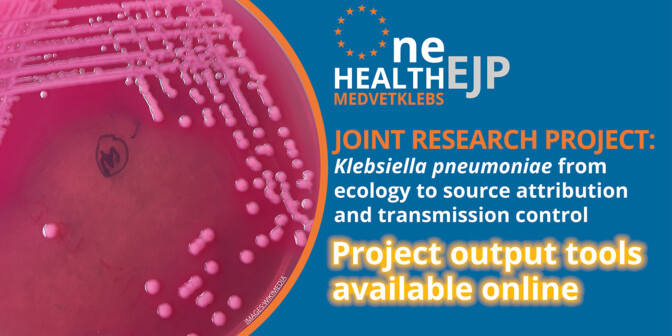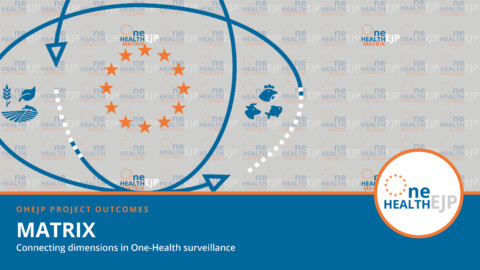Learn about MedVetKlebs project outputs to improve understanding of Klebsiella pneumoniae epidemiology
- Klebsiella pneumoniae (Kp) is a major contributor to the global burden of infectious diseases in humans.
- Klebsiella pneumoniae is among the top six human pathogens responsible for approximately 1.27 million deaths in 2019 attributable to antimicrobial resistance (AMR).
The MedVetKlebs project successfully enhanced Kp research and surveillance by developing and harmonising study methods and by investigating its ecology and transmission across sources.
Some of their project outputs and outcomes include:
- Development of the ZKIR Assay, a Real-Time PCR method for the detection of K. pneumoniae and closely related species in environmental samples (e.g. soil, food, faeces).
- The ZKIR Assay has been validated as a quantification method of K. pneumoniae in human faecal samples.
- The data on Klebsiella‘s prevalence and resistance/virulence in varied sources will contribute to improved risk assessment.
- Development of a transmission modelling approach provides a valuable tool to define outbreaks of K. pneumoniae and other food-borne or environmental pathogens.
Research done by MedVetKlebs will be beneficial for epidemiological surveillance of K. pneumoniae and to guide control measures.
For more information about the MedVetKlebs project and its applications, please go to our website. This project was led by Institut Pasteur.






